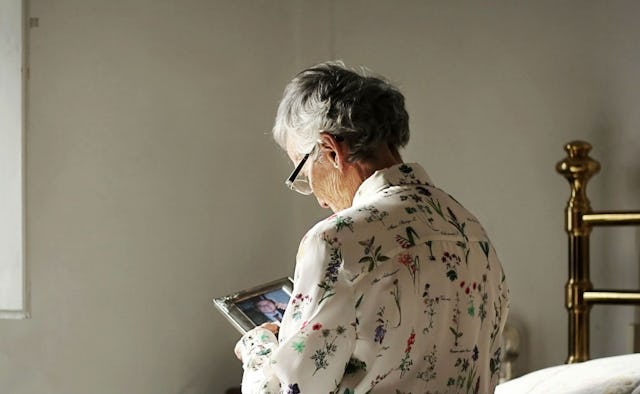How Should an Only Child Care for Her Aging Parents?

My mother recently spent three weeks in a “rehabilitation” facility in Florida after an injury. The building was long and low, the kind of concrete-block construction associated with barracks. Her Alzheimer’s-afflicted roommate moaned constantly. My mother, unable to get anyone’s attention for bathroom help or a glass of water, would sometimes use her cellphone to call the front desk, or just give up and wait until my dad or I arrived to help.
Twice while I was there the nurse brought pain meds in exactly half the prescribed quantity, which makes me wonder what sort of side business the staff was running in prescription painkillers. It was a miserable experience, and my mother has requested to be pushed off a cliff before returning to such a place.
But that leaves me, an only child, as the cliff-pusher-offer. This is a role I am unwilling to take on. She and my dad are managing OK now, but their health is a constant worry. And I live eight hours away, don’t own a car, and am the primary caregiver for two small children. Every day I think, what are we going to do when they need more care?
RELATED: 36 Caregiver Quotes And Poems Sure To Buoy Your Spirits
This is the premise of Ai-jen Poo’s new book, The Age of Dignity: Preparing for the Elder Boom in a Changing America. Poo, the director of the Domestic Workers Alliance, which organizes and lobbies for the rights of domestic workers, has written a heartfelt call to arms for the country to address its looming eldercare crisis. My parents are the leading edge of the baby boom; one-sixth of our population will reach the age of 65 by 2020. In the next 20 years, the number of Americans aged 65 and older will increase from 40 million to 70 million. Who’s going to help them with chores and cooking, and then bathing and dressing and driving, and then, when the time comes, skilled nursing?
The answer used to be, of course, women. But women are in the workforce now, and the kind of daily attention that frail elders need isn’t possible with only 24 hours in the day. I have a friend, also with small kids, who works all week and then drives to her elderly mother’s house, two hours away, on the weekends to clean, stock the freezer with microwavable meals, and help her mother bathe. My friend recently took the knobs off the stove after her mother set a dishtowel on fire. “She’s not ready for a nursing home, certainly,” my friend said. “But she really shouldn’t be living alone, either.” My friend is stretched to the brink—her marriage is strained, her finances are suffering and she gets no weekend time with her own kids. They can’t afford a paid aide and there’s no insurance provision for helping elders who need just a little bit of daily help.
I was expecting The Age of Dignity to call attention to this problem without offering concrete solutions. After all, I know that the population is aging, domestic workers are criminally underpaid, and that this is an ongoing nightmarish strain for grown children looking after elderly parents. (Everyone who has a parent or is a care worker knows this.) But the question is what to do about it.
To my surprise, Poo offers many workable solutions to a seemingly intractable problem, some small, like “time banks” in which one can log hours caring for a local elder that can be redeemed across the country for one’s own parent. But the most sweeping solution—and the likeliest to effect the biggest change—would be a major public-works initiative, akin to federal backing of the railroads, the interstate highway system, the Rural Electrification Administration, or more recently, the Defense Department’s investment in the Internet. Poo says, “These big ideas, and the momentum behind them, not only transformed our lives but also transformed our economy. In fact, in many cases, these investments were our economy, and most certainly saved our economy.”
The most sweeping solution—and the likeliest to effect the biggest change—would be a major public-works initiative, akin to federal backing of the railroads, the interstate highway system, or more recently, the Defense Department’s investment in the Internet.
“But those investments actually produced something!” I can hear critics saying. Poo makes the persuasive argument that appropriate caregiving is both cost-saving (in-home care is cheaper than nursing homes) and revenue-generating (public-works initiatives create jobs, and paying care workers fairly circulates more money back into the economy), two things both sides of the political aisle can get on board with.
I don’t know anyone who isn’t fearful about their parents’ care—and their own care!—in old age, for good reason: You would have to be very wealthy to guarantee yourself the kind of sensitive, community-based, stepped-up assistance that every citizen in, for example, Germany or Japan, takes for granted. The rest of us are stuck with hoping we never need a minute’s help, or hoping to be tossed off a cliff.
The sticking point, as always with issues that involve care work—unseen work done primarily by women and disproportionally by immigrants and women of color—is getting the white guys who represent us to do something. Poo notes that political will is like getting couples up on the dance floor—the first couple has to make the first brave move, a few more take the plunge, and pretty soon you have a pretty good dance going on. Getting older is a blessing, she says. It shouldn’t be a source of fear.
This article was originally published on